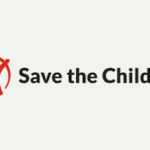Principal Accountabilities
- Lead the coordination and mobilisation of global functions, members, and country offices to deliver high-quality humanitarian responses that effectively address needs-based priorities across Save the Children’s global humanitarian portfolio.
- Ensure the availability and deployment of appropriate and evidence-based tools and guidance, enabling countries to understand and manage threats and risks within their operating environments, thereby anticipating, preparing for, and acting early on humanitarian crises.
- Lead and coordinate the provision of essential resources, including surge capacity, funding, and pre-positioned stock and supplies, to support effective humanitarian responses.
- Drive the continuous improvement and provision of comprehensive global response policies, frameworks, tools, and guidance to enhance the quality of Save the Children’s humanitarian operations.
- Oversee the functioning of the system of humanitarian alert, response categorisation, and cross-organisational prioritisation, ensuring timely and effective action in response to emerging crises.
- Align country-level humanitarian response strategies with global priorities and standards, working closely with movement humanitarian leadership to ensure they meet expectations regarding quality, scale, voice, and technical focus.
Essential Experience and Skills
1. Humanitarian Response & Leadership: Considerable experience in leading and coordinating large-scale humanitarian responses, including the mobilisation of resources such as surge capacity, funding, and pre-positioned stock. Demonstrated ability to lead, inspire, and manage multi-functional and multi-cultural teams. Strong coordination skills to ensure effective collaboration between global functions, members, and country offices.
2. Policy and Process Development: Extensive experience in developing and implementing comprehensive response policies, frameworks, tools, and guidance for humanitarian operations. Experience in developing and implementing frameworks for assessing and managing threats and risks within humanitarian operating environments. Proven ability to anticipate, prepare for, and respond early to potential crises.
3. Stakeholder Management & Communications: Proficient experience in engaging with multiple stakeholders, including global functions, members, and country offices. Experience in building and maintaining effective relationships with partners, donors, and other key actors. Exceptional communication skills, both written and verbal, with the ability to advocate for needs-based priorities and mobilise resources effectively. Able to engage and influence diverse stakeholders at all levels. Ability to build and maintain effective relationships with internal and external partners, ensuring a collaborative approach to humanitarian efforts.
4. Diversity, Equity, and Inclusion: Solid understanding of and commitment to diversity, equity, and inclusion principles. Proven track record of ensuring these principles are integrated into organisational practices and humanitarian responses. Commitment to pursuing cultural competency throughout the organisation, ensuring an inclusive environment that respects and values diverse perspectives and backgrounds.
5. Strategic Thinking: Ability to think strategically and creatively, anticipating future trends and scenarios, and developing long-term plans in alignment with Save the Children’s goals and mission.
6. Technical Proficiency: Strong understanding of humanitarian principles, standards (e.g., Sphere Standards, Core Humanitarian Standard), and evidence-based tools and practices in humanitarian response.
7. Problem-Solving and Decision Making: Proven ability to analyse complex situations, identify problems, and implement effective solutions promptly and ethically. Demonstrated aptitude in making decisions under pressure that reflect the organisation’s values and principles.
8. Resource Management: Proficiency in managing and optimising resources, including surge capacity, funding, and pre-positioned stock and supplies, ensuring that humanitarian responses are well-supported and sustainable.
9. Agility and Adaptability: Demonstrated flexibility and resilience in the face of changing contexts and dynamics in crisis settings. Willingness to take disciplined risks and adapt approaches as needed to achieve outcomes.
Education and Qualifications
Essential
A master’s or equivalent advanced degree in Humanitarian Affairs, International Development, Public Administration, Business Administration, or a related field. Equivalent professional experience may be considered in lieu of a degree.












